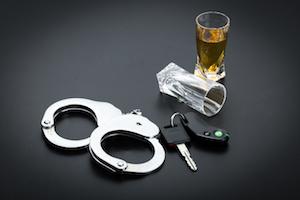Recent Blog Posts
What to Do After a Slip and Fall Accident in Wisconsin
 Slip and fall accidents can happen within a moment's notice to individuals of all ages and health statuses. Many of these incidents lead to severe, long-term injuries. Although they can happen just about anywhere, they frequently occur on sidewalks, parking lots, stairs, elevators, restaurants, and grocery stores. To ensure preparedness if you become injured, we have created this guide of what to do after a slip and fall accident in Wisconsin.
Slip and fall accidents can happen within a moment's notice to individuals of all ages and health statuses. Many of these incidents lead to severe, long-term injuries. Although they can happen just about anywhere, they frequently occur on sidewalks, parking lots, stairs, elevators, restaurants, and grocery stores. To ensure preparedness if you become injured, we have created this guide of what to do after a slip and fall accident in Wisconsin.
Seek Medical Attention
After a slip and fall accident, your health should be your top priority. For this reason, it is imperative to visit a doctor right away. Many falls result in internal injuries, most of which are not immediately noticeable to the untrained eye. A doctor can help you document your injuries and recover safely and efficiently.
5 Questions to Ask Your Doctor After a Car Accident
 If you have been injured in a car accident, you are likely feeling stressed and unsure of what to do. After things have calmed down a bit and you have exchanged information with others involved in the accident and made any required police reports, it is important to visit the doctor right away. Doing so will protect your health and increase your chances of obtaining the full and fair compensation you may be entitled to.
If you have been injured in a car accident, you are likely feeling stressed and unsure of what to do. After things have calmed down a bit and you have exchanged information with others involved in the accident and made any required police reports, it is important to visit the doctor right away. Doing so will protect your health and increase your chances of obtaining the full and fair compensation you may be entitled to.
When you do visit the doctor after a car accident, there are certain questions you should ask in order to protect your rights and recover in a safe and efficient manner. These questions include:
1. How Severe Are My Injuries?
Often, car accident victims believe their injuries are minor, when in reality, they are considered serious. Be sure to document the severity of your injuries so that you can share the documentation with your attorney and the liable party’s insurance company.
6 Vehicle Maintenance Tips to Help Teen Drivers Avoid Car Accidents
 Teens are more likely to cause car accidents than older, more experienced drivers. While gaining more experience and learning how to drive defensively is important for them, it is just as essential for teens to properly maintain their vehicles.
Teens are more likely to cause car accidents than older, more experienced drivers. While gaining more experience and learning how to drive defensively is important for them, it is just as essential for teens to properly maintain their vehicles.
A well-maintained vehicle can keep teens away from dangerous situations and reduce the risk of accidents. Here is a brief list of car maintenance tips teen drivers are highly encouraged to follow:
1. Keep Up With Car Maintenance Intervals
Each vehicle has its own unique maintenance schedule. To find this schedule, teens should look at their car’s owner’s manual. Whenever it is time for their vehicle to get an oil change, tire rotation, or any other type of maintenance, they should visit their car dealership or an experienced mechanic.
What Should I Do After a Dog Bite Injury in Waukesha County?
 Even though dogs are domesticated, they can still act aggressively in certain situations or around certain individuals, leading them to bite. In most cases, dogs bite because they are feeling threatened, scared, or stressed, or because they are simply trying to defend their territory or play without realizing how rough they are being.
Even though dogs are domesticated, they can still act aggressively in certain situations or around certain individuals, leading them to bite. In most cases, dogs bite because they are feeling threatened, scared, or stressed, or because they are simply trying to defend their territory or play without realizing how rough they are being.
When someone is injured by a dog bite, dog owners in Wisconsin are liable, regardless of whether they knew their dog was dangerous or not. If a dog previously injured someone, and the owner was aware, the owner may be required to pay double the amount of damages
Steps to Take After a Dog Bite
If you were hurt by a dog, you are not required to prove the negligence of the dog owner to recover compensation for your damages. After a dog bites you, there are certain steps you should take to protect your health, safety, and rights. These steps include:
Whiplash Symptoms and Treatments Following a Car Accident
 One of the most common types of injuries car accident victims face is whiplash, which occurs when the sudden movement of a person’s head places their neck and spine under a great deal of stress. Regardless of how whiplash occurs, those who suffer from it typically require some type of medical treatment in order to recover. Those who have been involved in a car accident should be sure to understand what this neck injury is and what your rights are if you sustain it.
One of the most common types of injuries car accident victims face is whiplash, which occurs when the sudden movement of a person’s head places their neck and spine under a great deal of stress. Regardless of how whiplash occurs, those who suffer from it typically require some type of medical treatment in order to recover. Those who have been involved in a car accident should be sure to understand what this neck injury is and what your rights are if you sustain it.
Whiplash Symptoms
The symptoms of whiplash usually appear within 24 hours of an accident, and they may include:
- Neck pain and stiffness, which worsens with movement
- Headaches and migraines
- A limited range of motion in the neck
- Dizziness and fatigue
- Memory or concentration issues
5 Common Misconceptions About DUI Charges
 A DUI charge can be frightening. If you have been arrested for DUI/OWI, you may be unsure of your rights and how to proceed. By educating yourself on some of the most common misconceptions about DUI charges, you can gain a better understanding of how drunk driving charges work and what your legal options may be. Here is a brief list of five of the most common misconceptions about DUI charges:
A DUI charge can be frightening. If you have been arrested for DUI/OWI, you may be unsure of your rights and how to proceed. By educating yourself on some of the most common misconceptions about DUI charges, you can gain a better understanding of how drunk driving charges work and what your legal options may be. Here is a brief list of five of the most common misconceptions about DUI charges:
1. If I Am Charged With a DUI, I Am Automatically Guilty.
Fortunately, a DUI charge and a DUI conviction are not the same. By seeking experienced legal representation for your DUI charge, you may be able to get your charges reduced or have your case dismissed. A lawyer can search for flaws in the prosecutor’s case which may improve your situation.
2. A DUI Is a Minor Offense.
5 Mistakes to Avoid When Arrested for DUI
 After a DUI/OWI arrest, you will likely feel overwhelmed and unsure of what to do. In order to ensure that your rights are protected and increase the chances of a favorable outcome for your case, it is important to clear your mind and avoid making some common mistakes. Here is a list of five mistakes you should be aware of:
After a DUI/OWI arrest, you will likely feel overwhelmed and unsure of what to do. In order to ensure that your rights are protected and increase the chances of a favorable outcome for your case, it is important to clear your mind and avoid making some common mistakes. Here is a list of five mistakes you should be aware of:
1. Ignoring Your Charge
Believe it or not, some people believe that ignoring a DUI charge is a good idea. You should know that taking no action after you have been arrested for a DUI will not cause your charge to disappear. In fact, failing to appear in court for your DUI can lead to additional charges that may result in fines and jail time.
2. Assuming You Are Guilty
It can be tempting to admit to a police officer that you were too intoxicated to drive. However, you should avoid doing so, as this may not be the case. You are not guilty unless the officer discovers that your blood alcohol content (BAC) is above the legal limit, and there were no flaws in the way the test was administered. Allow an experienced DUI lawyer to help you determine whether you are guilty.
New Wisconsin OWI Law Affects People With Multiple Convictions
 In March 2018, a new Wisconsin OWI law was passed by Governor Scott Walker. The purpose of this law is to permanently revoke the driver’s licenses of individuals who have been convicted of four or more offenses related to drunk driving. The state of Wisconsin believes that anyone can make a mistake, but making the same mistake four times is inexcusable, and it is time to get repeat drunk drivers off the roads.
In March 2018, a new Wisconsin OWI law was passed by Governor Scott Walker. The purpose of this law is to permanently revoke the driver’s licenses of individuals who have been convicted of four or more offenses related to drunk driving. The state of Wisconsin believes that anyone can make a mistake, but making the same mistake four times is inexcusable, and it is time to get repeat drunk drivers off the roads.
The new law states that if someone is convicted of four or more DUI-related offenses or had a second OWI in combination with two other OWI-related offenses (such as second-degree homicide involving a vehicle or injury by intoxicated use of a vehicle), their driver’s license will be permanently revoked by the Department of Transportation.
It is important to note that the fourth offense must arise within 15 years of the previous conviction. In the event someone has lost their license and is caught driving, they will be forced to pay a fine of $2,500 and may spend up to one year in prison. Second offenses may lead to a $10,000 fine and/or a year in prison.
Alternatives to Driving Drunk
 Drunk driving accidents occur because people do not find alternatives to drunk driving. They would rather get behind the wheel and take a risk then find another way to get home. The next time you are out drinking, be sure to consider the alternatives to drunk driving. By doing so, you can prevent a DUI and save your live as well as the lives of others. Here are four alternatives to drunk driving you should consider:
Drunk driving accidents occur because people do not find alternatives to drunk driving. They would rather get behind the wheel and take a risk then find another way to get home. The next time you are out drinking, be sure to consider the alternatives to drunk driving. By doing so, you can prevent a DUI and save your live as well as the lives of others. Here are four alternatives to drunk driving you should consider:
1. Public Transportation
If you need a ride after drinking, public transportation is a cost-effective option. You can take a bus, subway, or rail system and will not have to worry about whether or not you will make it home safe and sound. Be sure to check public transportation schedules in advance and make sure your public transportation method of choice will be running when you plan to go home.
2. Ridesharing Services
There is a reason ridesharing services have increased in popularity in recent years. They are convenient, dependable, and affordable. If you are planning on drinking, make sure you download the app of Uber, Lyft, or another ridesharing service. This way, you can easily request a ride when you are ready to go home.
4 Common Police Mistakes in a DUI Arrest
 Police officers are regular people who make mistakes. If you’ve been arrested for a DUI, it’s important to realize that the police officer who pulled you over may have made a mistake. Since a mistake by a police officer may help you avoid a conviction, you should familiarize yourself with the most common police mistakes in DUI arrests.
Police officers are regular people who make mistakes. If you’ve been arrested for a DUI, it’s important to realize that the police officer who pulled you over may have made a mistake. Since a mistake by a police officer may help you avoid a conviction, you should familiarize yourself with the most common police mistakes in DUI arrests.
- Lack of Probable Cause. In order to pull you over, a police officer must have had probable cause that you were driving under the influence of alcohol. If you were not swerving, speeding, or engaging in any other driving behavior that may lead a police officer to believe you were under the influence, your arrest may be invalid.
- Errors with Field Sobriety Tests. Field sobriety tests assess balance, coordination, and the ability of a driver to pay attention to more than one task. There are strict, detailed procedures for administering field sobriety tests. For instance, police officers must take fatigue, certain medical conditions, and the weather into consideration when administering these tests. Since it can be complicated to administer field sobriety tests, police officers may often make errors.














 262-446-9222
262-446-9222 262-446-9885
262-446-9885






